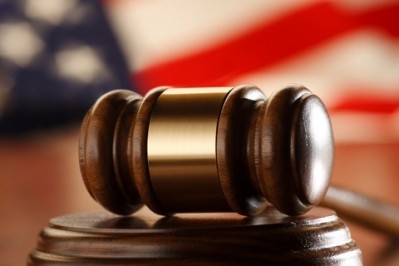FTC, FDA jointly crack down on firms making illegal opioid withdrawal treatment claims

The US Food and Drug Administration and the Federal Trade Commission announced the joint action in which 11 warning letters were sent by FDA to dietary supplement companies and an additional four warning letters were issued by FTC. According to an FTC statement, the companies were warned about “illegally marketing products with unproven claims about their ability to help in the treatment of opioid addiction and withdrawal.”
The 11 joint warning letters were sent to: Opiate Freedom Center (Opiate Freedom 5-Pack); U4Life, LLC (Mitadone); CalmSupport, LLC (CalmSupport); TaperAid (TaperAid & TaperAid Complete); Medicus Holistic Alternatives, LLC (Natracet); NutraCore Health Products, LLC (Opiate Detox Pro); Healthy Healing, LLC (Withdrawal Support); Soothedrawal, Inc. (Soothedrawal); Choice Detox Center, Inc. (Nofeel); GUNA, Inc. (GUNA-ADDICT 1); and King Bio, Inc. (AddictaPlex).
“Opioid addiction is a serious health epidemic that affects millions of Americans,” said Acting FTC Chairman Maureen K. Ohlhausen. “Individuals and their loved ones who struggle with this disease need real help, not unproven treatments. We will continue to work together with the FDA to address this important issue.”
Illegal claims
In the warning letters, the agencies took the product marketers to task for a variety of claims. The warning letters were the result of a claims review, and did not arise from inspection reports, and thus had no GMP observations component. The claims were found on product labels, in marketing materials and on YouTube videos. Among those were:
- “#1 Selling Opiate Withdrawal Brand”
- “Imagine a life without the irritability, cravings, restlessness, excitability, exhaustion and discomfort associated with the nightmare of addiction and withdrawal symptoms.”
- “Safe and effective natural supplements that work to ease many physical symptoms of opiate withdrawal.”
- “Break the pain killer habit.”
- “Relieve Your Symptoms…addiction, withdrawal, cravings.”
The products themselves ran the gamut of categories and formulations. Some products appeared to be positioned as nutritional support for those going through withdrawal and thus exhibiting nutritional deficiencies. Those products were based mostly on multivitamins. Many herbal products with purported cognitive benefits also made an appearance, including ashwagandha, chamomile, ginger, skullcap and valerian. Kratom, a trending but illegal herbal ingredient that has been advocated for as a potential opiate withdrawal treatment, did not form part of the enforcement action.
Similar actions in past
Ivan Wasserman, a partner in the firm Amin Talati Upadhye, said public health crises tend to bring companies out of the woodwork seeking to capitalize on the situation. While deferring to comment on the legality of the specific claims, he did say that these kinds of joint FDA/FTC actions are not new.
“When a public health crisis materializes and gets press there are companies that can seek to capitalize on that,” Wasserman told NutraIngredients-USA.
“This is consistent with actions the agencies have taken in the past in response to other public health crises. In the past they’ve done similar enforcement actions against companies claiming to prevent or treat everything from H1N1 (swine flu), SARS (severe acute respiratory syndrome) or anthrax, when there was that scare about it being sent through the mail,” he said.















